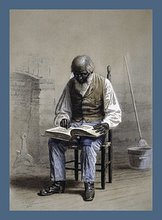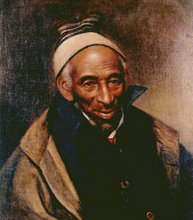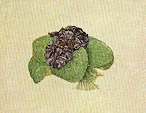The assumptions are the following:
1. There is a racial problem in the United States that affects African-Americas uniquely, because of the unique experience of slavery. This problem was lessened but not solved by the civil rights movement and its achievements. This problem will not be solved by a continuation or increase of methods used since the era of Lyndon Johnson. This problem continues to impose suffering upon African-Americans, but it is not simply a problem of poverty that can be solved by throwing money at it.
2. White people in the United States are generally oblivious to this problem, unless directly confronted with images of it. They believe that slavery is over, civil rights have been won, and that is it. Unless an African-American acts like a middle-class American, they have no understanding of African-Americans and as likely as not, will find themselves surprised by statements from middle-class African-Americans as well.
3. African-Americans have a pscyhological burden still upon them from the days of slavery and its terrible degradation of African-Americans; little that has happened since 1863 has lifted that burden. In my view, whereas Martin Luther King tried to lift it, the combination of the defeat of the civil rights movement in Chicago and the rise of the Black Power movement, acted to put many African-Americans back in the box. However, while African-Americans suffer from this burden, African-Americans did not cause it and cannot lift it alone.
4. It is important to note and to explore the implications of the fact that the civil rights movement was defeated in the north, not in the south, and when King came to the north, the liberal establishment discontinued its support to the civil rights movement.
5. The extreme segregation in the north, which has largely been left untouched, has created a wall of fear between whites and blacks in this region. This wall is thickened by the fact that compared with the south, where at least whites and black knew each other even if they hated each other most of the time, in the north, there is little if any social interaction between the races.
6. The racial problem in the United States is a probem for all Americans, not just African-Americans, beyond Martin Luther King's declaration that denial of rights to black citizens was a threat to all Americans. The reason that I am trying to get to is discusssed by Ralph Ellison briefly in his 1945 essay, "Beating That Boy," as follows:
"For since 1876 [formal imposition of Jim Crow], the race issue has been like a stave driven in to the American system of values, a stave so deeply imbedded in the American ethos as to render America a nation of ethical schizophrenics. Believing truly in democracy on one side of their minds, they act on the other in violation of its most sacred principles; holding that all men are created equal, they treat 13 million Americans as though they were not.... In terms of the ethical and pscyhological, what was opportunistically labeled 'the Negro problem' is actually a guilt problem charged with pain....
"This unwillingness to resolve the conflict in keeping with the democratic ideas has compelled the white American figuratively to force the Negro down into the deeper level of his consciousness, into the inner world, where reason and madness mingle with hope and memory and endlessly give birth to nightmare and dream....
"Indeed, the racial situation has exerted an influence upon the writer similar to that of an X-ray concealed in a radio. Moving about, perhaps ignoring, perhaps enjoying Jack Benny and Rochester, or a hot jazz band, he is unaware of his exposure to a force that shrivels his vital sperm. Not that it has rendered him completely sterile, but that it has caused him to produce deformed progeny--literary offspring without hearts, without brains, viscera or vision, and some even without genitalia.
"Thus it has not been the failure to depict racial matters that has determined the quality of American writing, but that the writer has formed the habit of living and thinking in a culture that is opposed to the deep thought and feeling necessary to profound art; hence its avoidance of emotion, its fear of ideas, its obsession with mere physical violence and pain, its overemphasis of understatement, its precise and complex verbal contructions for coverting goatsong ito carefully undulated squeaks."
Although I cannot articulate it, I feel that what Ellison is saying is true. The wound is open within the African-American community, and buried but alive within the white community (signs of which will be discussed later). How to heal it?
Tuesday, January 24, 2006
Subscribe to:
Post Comments (Atom)



No comments:
Post a Comment